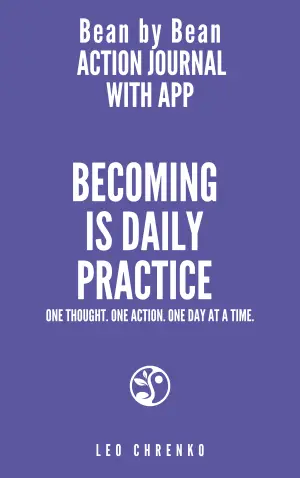A Dive into Connection: Anarquía Relacional by The Author
As a lifelong explorer of unconventional relationships, the title Anarquía Relacional: La revolución desde los vínculos immediately piqued my interest. Authored by [Author’s Name], this book challenges the very foundations of how we understand our connections in an increasingly complex social landscape. It’s not just a book; it feels like an invitation to rethink our relationships in a way that feels liberating yet deeply introspective.
The premise of Anarquía Relacional is both refreshing and bold. Author [Name] deftly distinguishes this approach from the well-worn pathways of polyamory, asserting that it’s not merely about the number of relationships one has, but about how we construct and nurture them. The clarity of expression in the text made complex ideas accessible, even inspiring, while occasionally leaving me wishing for a more concise exploration of certain points. However, the intricate tapestry woven through its pages encourages a fluid reading experience that kept me engaged.
One of the book’s standout themes is the critique of normative relational structures—be they monogamous or polyamorous. The assertion that "la solución a los sueldos de miseria no es el pluriempleo" (the solution to low wages is not more jobs) resonated deeply. It challenges the idea that merely shifting to non-monogamous relationships can solve deeper societal issues. Instead, [Name] posits that we need to dismantle preconceived notions about relationships altogether, advocating for self-managed connections devoid of authoritarian norms.
The inclusion of a glossary at the end is a thoughtful touch, particularly for those unfamiliar with activism-focused discourse. It serves as a useful entry point into the nuanced language surrounding affective activism. Highlighting remarkable quotes such as "la anarquía relacional propone sustiruir la normatividad por la autogestión de las relaciones" (anarchy relational proposes substituting normativity for self-management of relationships) adds a layer of motivational thought that lingers beyond the final page.
Despite its richness, some arguments felt underdeveloped. For instance, when [Name] suggests that rigid stereotypes maintain societal order, it raised questions in my mind that deserved deeper investigation. Yet, the opportunity for further discussion made me appreciate the book more, as it sparked internal dialogues about the societal constructs we often take for granted.
One of the most intriguing aspects was the exploration of how historical feminist and anarchist movements intersect. [Name] invites readers to recognize the evolution of these ideas and how, paradoxically, the trajectory has sometimes reversed over time. This intellectual journey resonates with me, framing personal growth not only in individual terms but as a collective, shared experience.
In conclusion, Anarquía Relacional is a thought-provoking read for anyone intrigued by the essence of human connection. It speaks profoundly to those disillusioned by traditional frameworks and eager to explore more sustainable, authentic relational networks. If you find yourself questioning the "norms" of your relationships or seeking a more expansive understanding of love, collaboration, and community, this book might just be your next enlightening adventure.
For me, the experience of reading this book was not just about absorbing information; it was a reflective journey that encouraged me to embrace the messiness of human connections while striving for meaningful bonds in a world that often feels fragmented. Join the conversation—it’s worth every page!
Discover more about Anarquía Relacional: La revolución desde los vínculos on GoodReads >>






